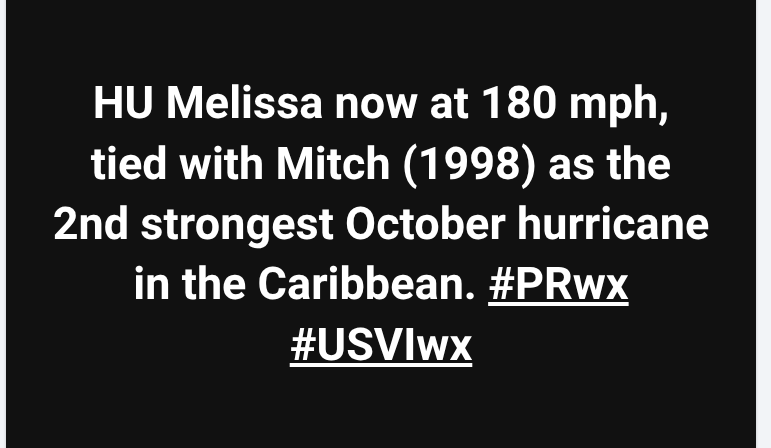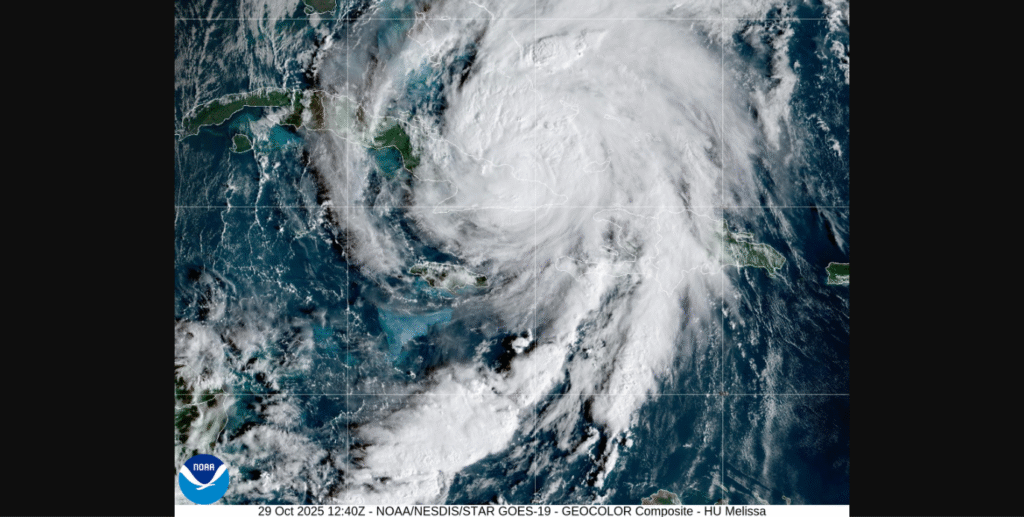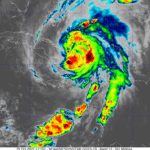KINGSTON — Hurricane Melissa was bringing life-threatening storm surge and flooding to Cuba today after leaving a swath of destruction in Jamaica, where many were cut off from the internet and major airports remained closed.
Melissa hit Jamaica yesterday as one of the strongest Category 5 storms on record, at one stage packing 185 m.p.h. winds. It knocked out communications and power for large swaths of the island, making it difficult for the authorities to get reliable assessments of the damage. Photos and videos posted on social media showed damaged cars and debris from roofs blown off by the storm.
It weakened somewhat before making landfall in Cuba, where President Miguel Díaz-Canel of Cuba had warned late Tuesday that it would be a “very difficult night” for the island. The authorities there evacuated close to 750,000 people ahead of the storm’s arrival, and the U.S. Navy has ordered personnel into shelters at its base at Guantánamo Bay.

Eastern Cuba could receive up to 20 inches of rain through Wednesday, with 25 inches expected in mountainous areas, forecasters said, warning of potentially catastrophic floods.
“We’re hoping to be able to do an assessment tomorrow, but as of right now, the reports that are coming in are catastrophic,” Daryl Vaz, Jamaica’s energy and transport minister, said in an interview with Sky News on Tuesday. “Not very much survives a Category 5 hurricane, in terms of infrastructure.” The eastern parts of the island, including the capital, Kingston, were mostly undamaged, Mr. Vaz said.
At one stage on Tuesday, more than half a million people were without power in Jamaica, officials said. And by Tuesday night, internet connectivity in Jamaica had dropped to 30 percent of normal levels, according to NetBlocks, which monitors outages.
Forecasters and government officials have expressed fears that the heavy amounts of rain the storm dumped on Jamaica had caused flash flooding in narrow river valleys and landslides in the mountainous parts of the island.
Here’s what else to know:
- Tracking the storm: Strengthened by Caribbean water temperatures far warmer than usual, Melissa is expected to remain an intensely destructive force throughout the next few days as it passes through the Caribbean, while bypassing the United States.
- Aid concerns: Budget cutbacks and reduced donations will reduce the amount of food that aid agencies like the World Food Program can provide after natural disasters this year. Jamaica and Cuba are expected to face the most severe public health effects after the storm — including disrupted health care, contaminated water, disease outbreaks and mental health issues.



